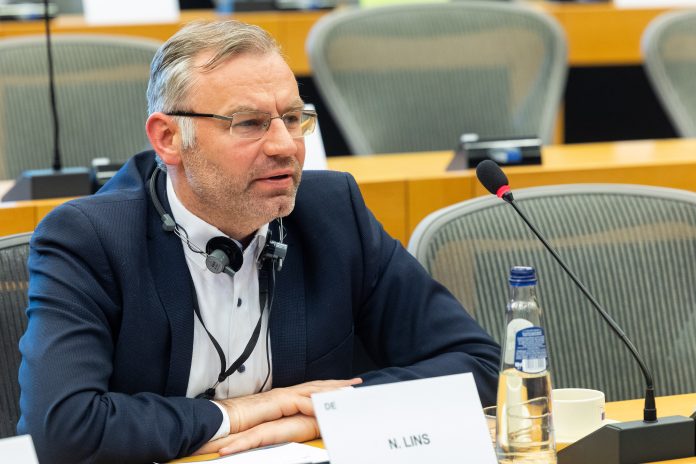To protect the EU farming sector the functioning of Solidarity Lanes shoul be improved and transports of Ukrainian grain should not be unloaded in the EU, reads a letter of Norbert Lins.
In a letter addressed on Friday, 28 April to the European Commission, the Chair of the EP’s Agriculture Committee Norbert Lins (EPP, DE) supported by all political groups in the Committee call on the European Commission “to protect the EU farming sector from the repercussions of the Russian invasion, and to address any market disturbances which may risk to fuel fear and resentment among farmers and feed Russian propaganda”.
While the Union temporary trade liberalisation of Ukrainian products is “vital for Ukraine and for all countries around the world” and “the temporary measures currently in force coupled with the Solidarity Lanes have proved very effective”, “these achievements also give rise to concerns”, writes the Agriculture Committee Chair pointing to the destabilisation of agricultural markets in EU Member States due to the influx of Ukrainian products.
The actual effects of these products on the price drops and the relevance of any corrective measures remain unclear, reads the letter. Mr Lins therefore asks the Commission to “comprehensively assess the situation on the relevant markets, including the final destination of the goods imported from Ukraine and their impact on commodity prices”.
It is essential “to put forward European, pragmatic and constructive solutions to improve the functioning of the Solidarity Lanes, so that Ukrainian agricultural products are actually re-exported to third countries or the Member States that need them”. MEPs therefore suggest “the introduction of import/export certificates for transport of Ukrainian cereals, as for exports to third countries, with mandatory control, and transiting EU territory with the clear mention TRANSIT. These transports should not have the possibility of being unloaded in the EU”.
Phytosanitary certificates should be introduced as “part of transport certificates, confirming that the Ukrainian cereals comply with the EU standards and, doing so, avoid deception on the quality of Ukrainian grain”, adds the Chair.
Mr Lins reiterates his request for a task force or a special envoy in the Commission “dedicated to dealing solely with Ukrainian grain exports” and calls on the Commission “to buy wheat, in cooperation with the World Food Programme of the United Nations, to ensure that it is actually transported to Africa and the Middle East”.
Members of the Agriculture and Rural Development Committee debated current developments in the area of agricultural imports from Ukraine with Markian Dmytrasevych, Deputy Minister of Agrarian Policy and Food of Ukraine on 24 April.
The EP International Trade Committee backed a renewal of EU import duties on Ukrainian exports suspension on Thursday. The report is scheduled to be voted by all MEPs during the 8-11 May plenary session.

